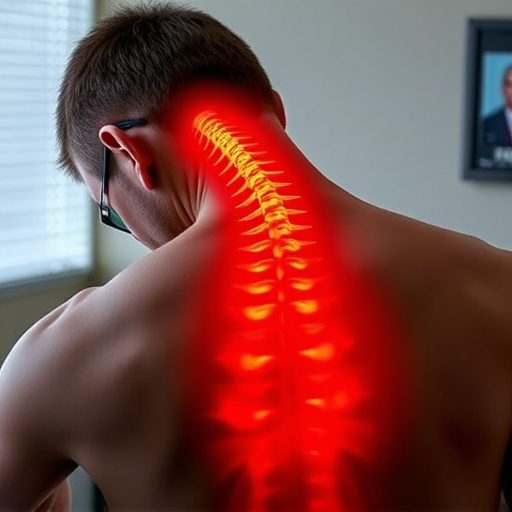Workers compensation injury care is a specialized field combining legal and medical aspects to support employees injured on the job. This integrated approach ensures financial support, medical treatment, and rehabilitation services tailored to individual needs, facilitating recovery and return to work. By evaluating personal circumstances, mental health, and prior healthcare experiences, healthcare professionals create personalized treatment plans that address physical and psychological well-being. Tailored strategies like specialized rehab programs for repetitive strain injuries (RSIs) and customized chronic pain management have proven effective in improving outcomes, job satisfaction, and quality of life. The future holds digital transformation with AI-driven predictions and real-time monitoring to prevent and manage injuries proactively.
In the complex landscape of workers compensation injury care, a one-size-fits-all approach rarely yields optimal outcomes. Each patient’s journey towards recovery is unique, influenced by factors like injury type, severity, and pre-existing conditions. This article explores the imperative need for an individualized approach, delving into legal and medical perspectives to understand workers compensation injury care. We’ll dissect strategies for assessing patient-specific requirements, tailoring rehabilitation plans, and successful case studies, while also peering into future trends shaped by technology’s transformative role in customized management.
- Understanding Workers Compensation Injury Care: A Legal and Medical Perspective
- The Need for Individualized Approach in Treatment
- Assessing Patient-Specific Requirements for Optimal Recovery
- Tailoring Rehabilitation Plans to Enhance Workplace Return
- Case Studies: Successful Implementation of Personalized Care Strategies
- Future Trends: Technology's Role in Customized Workers Comp Injury Management
Understanding Workers Compensation Injury Care: A Legal and Medical Perspective

Workers compensation injury care is a specialized field that intersects both legal and medical domains, requiring a nuanced understanding to effectively address the unique needs of each patient. From a legal perspective, workers comp programs are designed to provide financial and medical support to employees injured or disabled on the job, with specific benefits and entitlements dictated by state laws. This includes coverage for medical expenses, rehabilitation services, and wage replacement during recovery.
From a medical standpoint, workers compensation injury care focuses on rehabilitating employees to the fullest extent possible, helping them return to work in suitable roles. Healthcare professionals play a crucial role in evaluating injuries, designing treatment plans, and collaborating with legal entities to ensure adherence to workers comp regulations. This integrated approach aims to not only heal physical wounds but also navigate the legal complexities, ultimately fostering a supportive environment for injured workers’ successful recovery and reintegration into the workforce.
The Need for Individualized Approach in Treatment

In the realm of healthcare, particularly when addressing workers’ compensation injury care, a one-size-fits-all approach rarely yields optimal results. Every patient’s journey is unique, shaped by their specific work-related injuries, underlying health conditions, and personal circumstances. Therefore, adopting an individualized approach becomes paramount in ensuring effective treatment and recovery. This tailored method recognizes that each individual responds differently to medical interventions and has distinct needs beyond the standard protocol.
By adapting care plans to specific patients, healthcare providers can address not just the physical aspects of a worker’s injury but also their psychological well-being, return-to-work capabilities, and overall quality of life. This holistic perspective is especially crucial in managing long-term care, where an understanding of each patient’s unique challenges enables more successful rehabilitation and fosters a faster road to recovery.
Assessing Patient-Specific Requirements for Optimal Recovery

When it comes to workers’ compensation injury care, understanding each patient’s unique needs is paramount for optimal recovery. Assessing patient-specific requirements involves a thorough evaluation beyond the physical injury itself. This includes factoring in personal circumstances, mental health status, and the patient’s previous experience with healthcare. By considering these elements, medical professionals can tailor treatment plans that address not just the physical aspects of the injury but also the individual’s psychological well-being and ability to reintegrate into the workforce.
A comprehensive assessment might include reviewing the patient’s work history, discussing their return-to-work goals, and identifying any barriers they may face during rehabilitation. This personalized approach ensures that care is not just effective but also aligned with the patient’s aspirations, leading to better outcomes and increased satisfaction throughout the recovery process.
Tailoring Rehabilitation Plans to Enhance Workplace Return

In the context of workers compensation injury care, a personalized approach is vital for effective rehabilitation and successful workplace return. Tailoring rehabilitation plans to each patient’s unique needs ensures that they receive targeted support aligned with their specific injuries and goals. This individualized strategy goes beyond generic treatment protocols, acknowledging that every worker has distinct physical capabilities, limitations, and aspirations post-injury. By assessing factors such as job duties, work environment, and personal preferences, healthcare professionals can design comprehensive rehabilitation programs that prepare employees for a safe and seamless transition back to their roles.
A personalized approach allows for more effective management of pain and disability, enhancing the patient’s overall well-being and job satisfaction upon return. This strategy considers not just physical recovery but also psychological aspects, ensuring workers feel supported throughout the healing process. Ultimately, this individualized care fosters a sense of empowerment, enabling employees to manage their conditions effectively while contributing to a positive outcome in terms of productivity and job retention.
Case Studies: Successful Implementation of Personalized Care Strategies

In the realm of workers compensation injury care, a shift towards personalized approaches has proven to be a game-changer. Case studies illustrate that implementing tailored care strategies significantly enhances patient outcomes. For instance, a study focusing on a specialized rehabilitation program for employees with repetitive strain injuries (RSIs) demonstrated remarkable results. The program, designed to cater to individual needs, incorporated physical therapy, ergonomic adjustments, and mental health support. Patients experienced reduced pain levels, improved functional abilities, and increased job satisfaction, leading to faster returns to work.
Another compelling example involves a personalized treatment plan for patients with chronic pain. By assessing each patient’s unique circumstances, including their occupation, lifestyle, and psychological factors, healthcare providers developed customized interventions. This approach resulted in better pain management, enhanced quality of life, and increased employment rates among participants. These success stories underscore the power of individualized care in optimizing recovery and ensuring patients can safely resume their work responsibilities.
Future Trends: Technology's Role in Customized Workers Comp Injury Management

The future of workers compensation injury management is looking increasingly digital, with technology playing a pivotal role in providing more personalized and effective care. AI-driven systems are set to revolutionize this field by analyzing vast datasets to predict and prevent injuries before they occur. These advanced algorithms can identify patterns and risk factors specific to individual workers, enabling proactive interventions and tailored prevention strategies.
Through the integration of wearable devices and real-time monitoring, healthcare professionals can gain continuous insights into a worker’s physical well-being, allowing for immediate adjustments to their compensation plans or work routines. This shift towards a tech-aided, individualized approach promises to enhance recovery outcomes, minimize disability, and ultimately improve the overall quality of life for those affected by workplace injuries.














